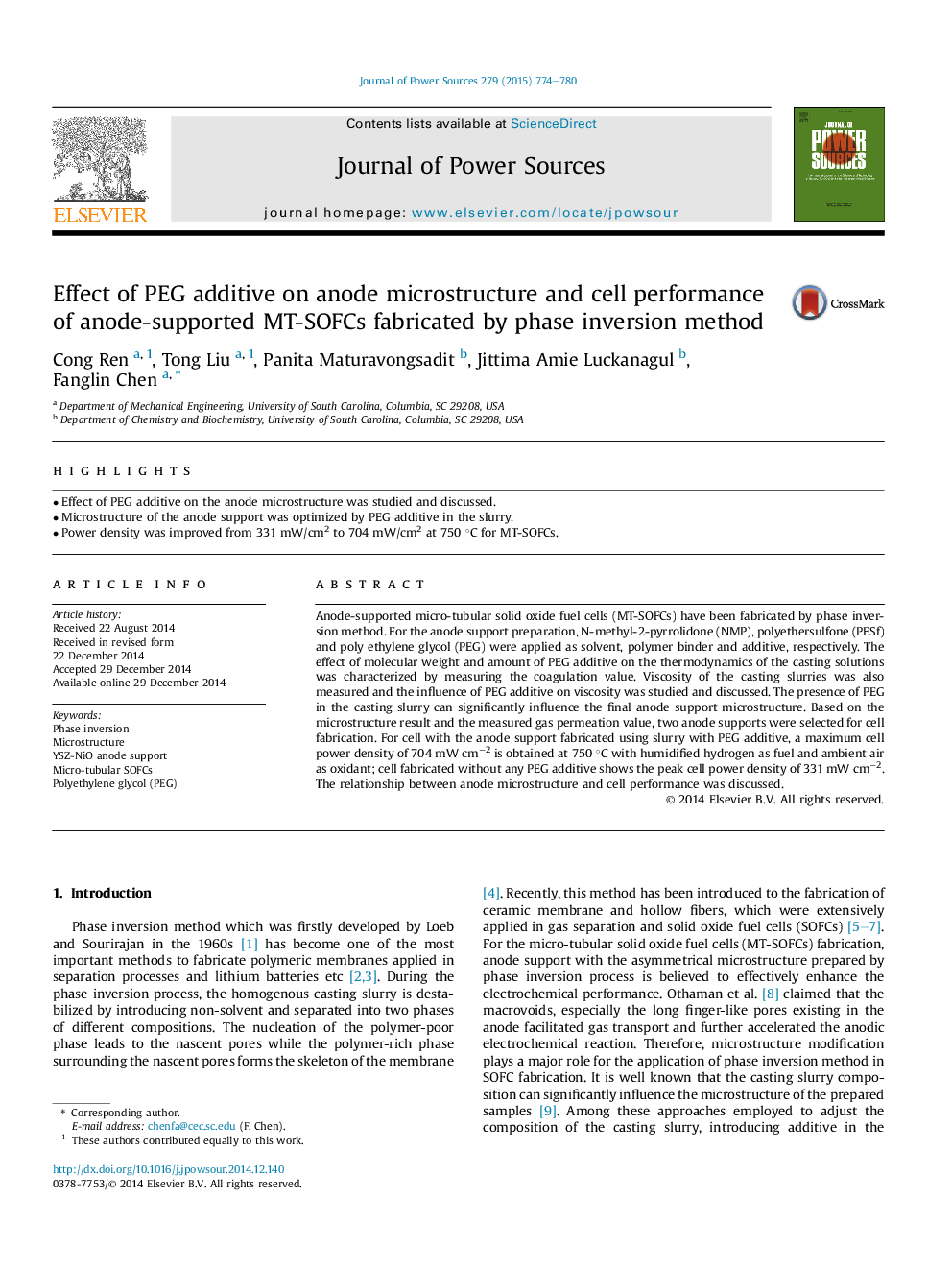| Article ID | Journal | Published Year | Pages | File Type |
|---|---|---|---|---|
| 7733426 | Journal of Power Sources | 2015 | 7 Pages |
Abstract
Anode-supported micro-tubular solid oxide fuel cells (MT-SOFCs) have been fabricated by phase inversion method. For the anode support preparation, N-methyl-2-pyrrolidone (NMP), polyethersulfone (PESf) and poly ethylene glycol (PEG) were applied as solvent, polymer binder and additive, respectively. The effect of molecular weight and amount of PEG additive on the thermodynamics of the casting solutions was characterized by measuring the coagulation value. Viscosity of the casting slurries was also measured and the influence of PEG additive on viscosity was studied and discussed. The presence of PEG in the casting slurry can significantly influence the final anode support microstructure. Based on the microstructure result and the measured gas permeation value, two anode supports were selected for cell fabrication. For cell with the anode support fabricated using slurry with PEG additive, a maximum cell power density of 704 mW cmâ2 is obtained at 750 °C with humidified hydrogen as fuel and ambient air as oxidant; cell fabricated without any PEG additive shows the peak cell power density of 331 mW cmâ2. The relationship between anode microstructure and cell performance was discussed.
Related Topics
Physical Sciences and Engineering
Chemistry
Electrochemistry
Authors
Cong Ren, Tong Liu, Panita Maturavongsadit, Jittima Amie Luckanagul, Fanglin Chen,
